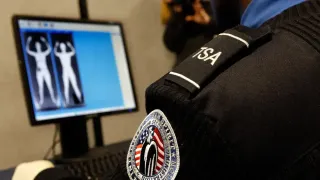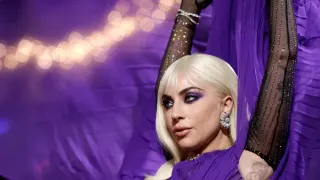March 8, 2021
2021 Berlin Film Fest Diary: Entry 2 - Expected & Unexpected Highlights
C.J. Prince READ TIME: 5 MIN.
Some good news: despite the switch to a virtual format and delay on cinema screenings, the quality at Berlin hasn't diminished. As the festival premiered more of its program across its short five-day duration, the hits kept coming, which I'll take as a positive sign for the rest of 2021.
No title at the festival was more anticipated than "Petite Maman," the newest work from Celina Sciamma since taking the film world by storm with "Portrait of a Lady on Fire." Shot in secret in the fall of 2020, the pandemic meant a considerably smaller scale effort for Sciamma this time around, but only on a practical level. In terms of emotion, this is her biggest effort to date, and the amount of power she pulls out of her simple premise is overwhelming.
With only a 70-minute runtime and a barebones story, it's best to avoid reading much about "Petite Maman" in case you ruin the experience for yourself, so I'll only talk about the initial set-up. Taking place in the countryside of France, 8-year-old Nelly (Josephine Sanz) is dealing with the loss of her grandmother, which involves travelling with her mother (Nina Meurisse) to clear out the old family home.
While her mother deals with her own grief on top of logistical matters, Nelly spends time playing in the home's surrounding forest, where she meets another 8-year-old girl (Gabrielle Sanz). How this relationship develops plays into a compelling idea that's been around a while, which Sciamma and cinematographer Claire Mathon improve on through a visual style that conveys rich, emotional depths through simple gestures or camera movements. Without going into too much detail, I can only hope that you'll trust that "Petite Maman" is a near-masterpiece, Sciamma's best work to date..
Continuing the competition's winning streak is Ryusuke Hamaguchi's "Wheel of Fortune and Fantasy," which sees the filmmaker taking a much shorter approach to narrative after making the 5.5 hour "Happy Hour." Consisting of three unrelated short stories, each one shares common ideas of coincidence, miscommunication, and romance.
Each of the three episodes centers around consequential one-on-one interactions; episode one has a woman hearing from her best friend about an amazing first date she had, only to realize the man from the date is her ex-boyfriend; episode two finds a woman trying to seduce a professor as a revenge mission for her boyfriend with unexpected results; and the final episode shows two high school friends bumping into each other and bringing up painful memories from their pasts.
Hamaguchi's assuredness as a writer and director in terms of story and dialogue only get better with each film, constructing long conversations that cover a wide range of emotions without feeling contrived or unnatural.
Much like his last film, "Asako I and II," he continues playing with cliches and tropes, taking plot lines that could fit within a sitcom and recontextualizing them in ways to bring out ideas and feelings that feel completely out of left field. What both "Asako" and "Wheel" show is Hamaguchi's innate understanding of narrative and comforts, allowing him to tweak and subvert his way into discovering new methods of accessing universal truths.
Established one year ago, the Encounters program is turning out to be a brilliant addition to the festival thanks to films like Ramon and Silvan Zurcher's "The Girl and the Spider." Their 2013 debut "The Strange Little Cat" (directed by just Ramon) still remains one of the most singular debuts to come out of this century, and this follow-up sees both brothers increasing their ambition while not tampering with their own formula. Taking place over two days, Lisa (Liliane Amuat) is moving into her own apartment, leaving behind roommate Mara (Henriette Confurius) who can barely hide her hurt feelings over the situation. The setting both old and new apartments allows the Zurchers to build a transitional space where their ensemble can explore possibilities of affection, whether it's Lisa's mother hitting on a handyman, two neighbors roping the handyman's son into a love triangle, or even the old woman in the apartment above who befriends another tenant's cat.
Everything that made "The Strange Little Cat" such a beguiling experience is present here, meaning the thrill of watching the Zurchers' ultra-precise filmmaking is a little more subdued but still impressive. Playing out largely through medium close-ups of characters in the center of the frame, actions are usually portrayed separately from the people performing them; when someone purposely spills a cup of wine, it plays out as two separate shots of the spill itself and the person's face as they're doing it.
It's a style that puts everything in discrete terms, creating a distancing effect that somehow has a gravitational pull to it at the same time. How it all comes together in the end remains a bit hard to figure out, beyond communicating unspoken desires in various shapes and forms. I'd describe "The Girl and the Spider" as watching someone put together a jigsaw puzzle of a blurred photo. The result may not be entirely clear, but there's satisfaction in watching the individual pieces snap into place.
Finally, a competition entry that came out of left field, Alexandre Koberidze's "What Do We See When We Look at the Sky?" is only the director's second feature, but he's stuffed enough movie in this to sustain an entire career. Starting out as a fairy tale, Giorgi (Giorgi Ambroladze) and Lisa (Oliko Barbakadze) make an instant connection when they bump into each other on the street, and plan to meet again for a date the next day.
Unfortunately, as the film's narrator reveals, an evil eye observing their love at first sight curses them by making them both wake up the next day as entirely different people (now played by Giorgi Bochorishvili and Ani Karseladze). Now, unable to recognize each other, the young lovers will never meet again despite circumstances always putting them around each other.
But Koberidze has many, many other things on his mind than his magical realist spin on a rom-com (which could be a great movie just on its own). Over its two and a half hours, the film spirals out into one digression after another across the city of Kutaisi, ranging from a kids' soccer game becoming a full-blown music video or following the dramatic relationships between street dogs and their preferred spots to watch soccer matches.
Near the end, Koberidze bites more than he can chew, but it's easily forgiven considering how much he accomplishes. Recalling the manic and swooning romanticism of "Amelie" without getting too twee, "What Do We See When We Look at the Sky?" offers the delight of watching someone throw everything they've got at the wall and making most of it stick.
Whether it's the gorgeous locale, the eclectic score, or the constant nods to silent-era comedies, it's impossible to not get infected by Koberidze's energy, making viewers feel as much a part of the story as the characters. This is the kind of pleasant surprise that makes Berlin worth attending.






